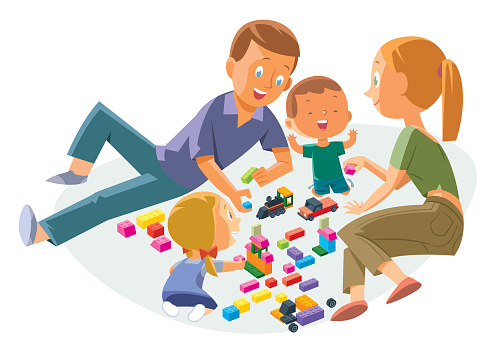Biography
How can Montessori education facilitate the growth of cognitive abilities in kids?
As parents, we all want our children to grow and learn to the best of their abilities. Education is a critical aspect of their development, and choosing the right educational approach can make all the difference. There are many different philosophies and methodologies out there, each with its own strengths and weaknesses. In recent years, Montessori education has gained popularity as an alternative to traditional teaching methods. But what exactly is Montessori education, and how does it differ from other approaches? In this blog post, we will explore the fundamentals of Montessori education and its potential benefits for children’s cognitive development.
What is Cognitive Development?
Cognitive development refers to the process of how a child learns, thinks, and understands the world around them. It involves the development of mental processes such as memory, attention, problem-solving, and language.
As children grow and experience new things, their cognitive abilities also develop and become more complex. This process is influenced by various factors such as genetics, environment, culture, and experiences.
A better understanding of cognitive development can help parents and educators support children’s learning and development effectively.

Montessori Theory
The Montessori Theory is an educational approach developed by Dr. Maria Montessori, an Italian educator, and physician. This theory emphasizes the importance of individualized learning and creating an environment that supports a child’s natural development.
The Montessori approach promotes hands-on learning and encourages students to independently explore and discover their own interests. The teacher’s role in this approach is to act as a facilitator, guiding students toward their own learning goals.
The Montessori Theory has been widely adopted in schools around the world and has been shown to be effective in promoting academic and personal growth in children.
How does Montessori education nurture cognitive skills?
Montessori education is a unique approach to teaching that emphasizes hands-on learning and individualized instruction.
This approach is designed to foster cognitive skills, such as problem-solving, critical thinking, and creativity. One way that Montessori education fosters cognitive skills is through its use of hands-on materials. These materials are specifically designed to engage children in activities that help them develop their cognitive abilities. For example, Montessori students may use blocks and other manipulatives to learn math concepts, which helps them understand abstract concepts in a concrete way.
Another way that Montessori education fosters cognitive skills is through its emphasis on individualized instruction. Montessori teachers work with each student to identify their strengths and weaknesses and tailor their instruction accordingly. This approach allows students to work at their own pace and develop their cognitive skills in a way that is best suited to their individual learning styles.
Finally, Montessori education fosters cognitive skills through its emphasis on independence and self-directed learning. Students are encouraged to take ownership of their learning and to explore subjects in depth on their own. This approach helps students develop their problem-solving and critical thinking skills, as they are required to think independently and find solutions to problems on their own.

Implement the Montessori method at home
Here are some tips to help you implement the Montessori method at home:
1. Create a prepared environment: Set up a space that is safe, inviting, and organized for your child to explore. Include age-appropriate materials that will challenge and inspire them.
2. Follow your child’s interests: Observe your child to see what they are naturally drawn to, and provide opportunities for them to explore those interests. When a child is engaged in an activity they enjoy, they are more likely to develop cognitive skills.
3. Focus on practical life skills: Help your child build independence and self-esteem by teaching them basic life skills, such as cooking, cleaning, and caring for themselves.
4. Encourage hands-on learning: Provide hands-on experiences that allow your child to explore new concepts and learn through trial and error.
By incorporating these tips into your daily routine, you can help your child develop cognitive skills that will serve them well throughout their life. Give the Montessori method a try and see the difference it can make!
>> Read more: Montessori Parenting: The Revolutionary Approach Every Parent Needs to Know
